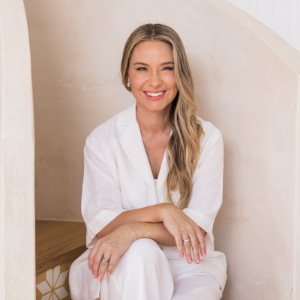
Mastering google ads: A blueprint for e-commerce success
Google Ads are a powerful tool to add to your eCommerce marketing arsenal. With Google being the main place people search for answers online, it makes sense to connect them directly to your products and services. However, Google Ads aren’t right for every business at every stage. So how do you know if they are right for you, and how do you use them effectively? That’s exactly what this blog post will cover, giving you tips on mastering Google Ads to drive traffic, increase sales, and grow your eCommerce business.
The different types of Google campaigns for eCommerce owners:
Fundamentally, there are two types of Google campaigns that work well for eCommerce businesses: Shopping-based and Search campaigns.
Shopping-based campaigns are run primarily through the traditional shopping campaign or the newer Performance Max campaigns, which include shopping options. These campaigns allow you to display your products with images directly in search results. While Performance Max campaigns are a great way of showcasing your products, it’s worth keeping in mind that the analytic data from these campaigns can be more limited.
Search campaigns, on the other hand, are ideal for targeting specific keywords and delivering text-based ads. These are the ads that appear when a user searches for something specific, and they provide strong conversion statistics, allowing you to understand and optimise your strategy.
Together, Shopping and Search campaigns form a balanced and well-rounded marketing foundation. Mastering Google Ads starts with understanding these two campaign types, as they provide the strongest foundation for driving traffic and sales for your eCommerce store.
These are not the only campaign options in Google Ads. There are other options, such as YouTube campaigns. However, the easiest way to get started with Google Ads for an eCommerce store is to establish a strong strategy foundation with Shopping-based and Search campaigns. You can explore other campaign types when you’re ready to optimise and scale.
What audiences see in Performance Max campaigns?
Google introduced Performance Max as a type of catch-all campaign where shopping, search, and re-marketing rolled into one. Google is using your product feed as data points to identify who the products should be showcased to. You also layer across interest-based audiences in the absence of keywords. This makes Performance Max a broad campaign that can be optimised to suit specific audiences on an ongoing basis.
Performance Max campaigns still rely on audiences to be searching for your specific kind of products. So, if you are looking for a more brand awareness style of campaign, Google Ads might not be the option for you. Other platforms like social media Ads might be a better place to start.
The easiest campaign for eCommerce founders to get started with Google Ads:
Shopping focussed ads are a great way to start because the visual nature of these campaigns pre-qualifies your buyers by showing them what they will get from the beginning. As soon as your buyer searches for their problem, your product will visually appear in front of their eyes. However, there are some product types that will be more naturally suited to a keyword or search campaign. If your product is super niche and will be difficult for Google to present in front of correct shopping streams, you might benefit from a stricter keyword focussed search campaign.
What is a good Daily budget to start out with when Mastering Google Ads:
Typically, a daily budget of $10 to $20 is enough to test your campaigns. This allows you to monitor your keywords, experiment with different elements, and see what works and what doesn’t. The actual budget for your long-term strategy may vary depending on factors such as product price, conversion rate, and customer lifetime value. By starting small, you can refine these elements over time while mastering Google Ads and building a strategy that drives consistent results for your business.
Frequent mistakes people make with Google Ads:
One common mistake is using broad match keywords that lack precision. These can lead to irrelevant traffic and poor campaign performance. Broad match keywords leave room for Google to roughly determine results that might be generally linked to your keywords and they rarely convert well.
Another common mistake is not monitoring conversion statistics properly. To get the best results, you really need to understand how people are searching for you and do your keyword research properly so you can continually optimise your campaign strategies.
Easy wins on Google Ads:
The quickest easy win with Google Ads is to get your tech set up right. Make sure you have accurate conversion tracking established on whatever platform you are selling from, otherwise you won’t have the data needed to make informed decisions and optimisations.
Is it really possible to learn and manage our own Google Ads?
Yes! It's entirely possible to learn and manage Google Ads yourself. But it pays to focus on mastering Google Ads basics and set your campaign strategies up correctly from the beginning. A great way to equip yourself with the knowledge and skills to handle your own Google Ads campaigns is to work with Kaity Griffin from Sunday Digital. She offers a range of programs that will take you from complete novice to Google Ads pro. Investing in your own learning is a smart business move because it saves you the high fees of advertising agencies. Learn more about Kaity’s programs here:
Google Ads Bootcamp - Module one of her comprehensive course, offering a strong grasp of Google Ads essentials.
Free Keyword Series - An ideal starting point to comprehend the fundamentals of Google Ads.
Profitable Promotion - The flagship course that equips you with the expertise to revolutionise your e-commerce advertising efforts.



